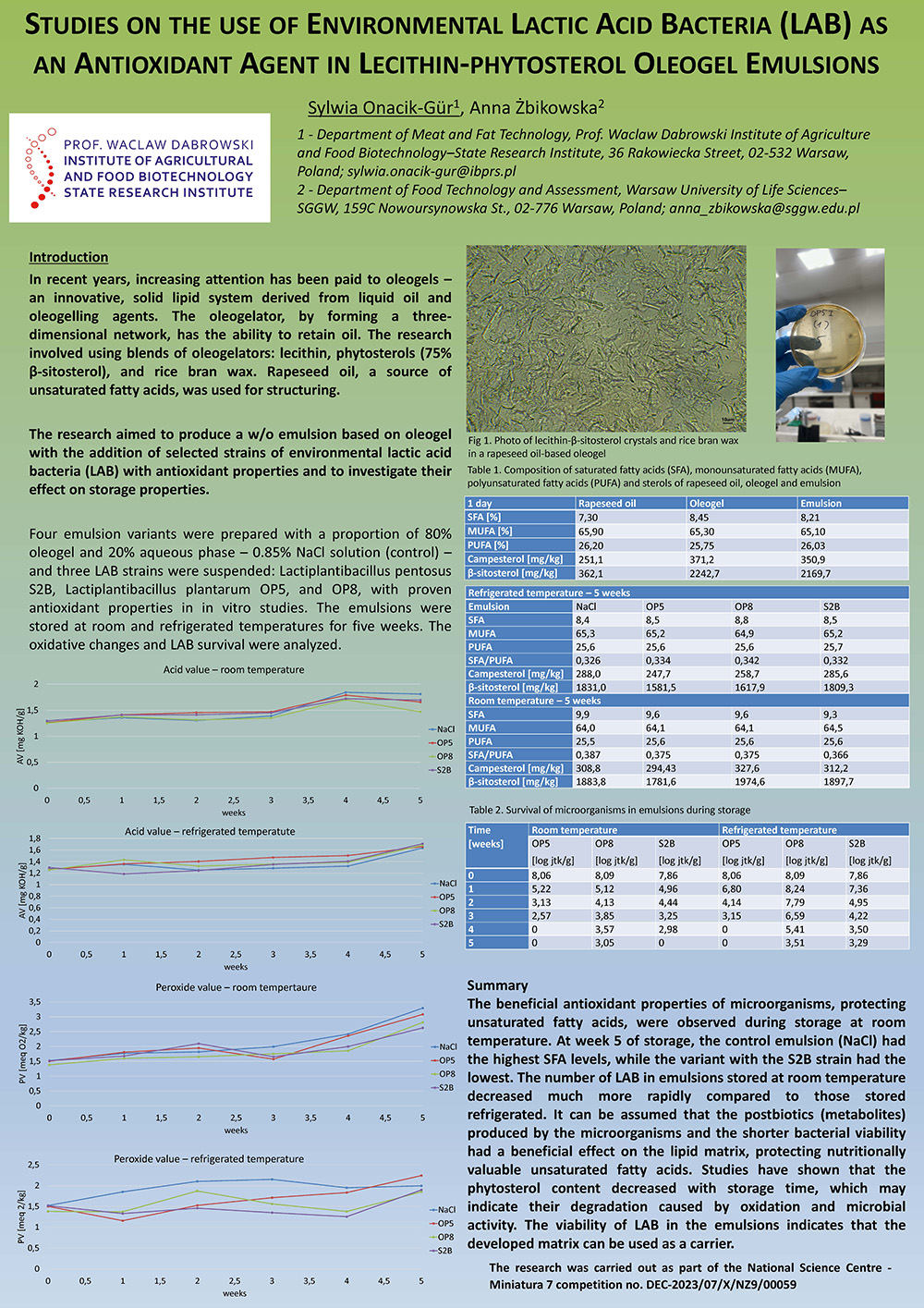In recent years, increasing attention has been paid to oleogels – an innovative, solid lipid system obtained from liquid oil and oleogelling agents. The oleogelator forms a three-dimensional network, which retains oil within its structure. The research involved the use of oleogelator blends: lecithin, phytosterols (75% βsitosterol), and rice bran wax. Rapeseed oil, a source of unsaturated fatty acids, was structured. The research aimed to produce a w/o emulsion based on oleogels with the addition of selected strains of environmental lactic acid bacteria (LAB) with antioxidant properties and to investigate their effect on storage properties.
Four emulsion variants were prepared with a proportion of 80% oleogel and 20% aqueous phase – 0.85% NaCl solution (control) – and three LAB strains were suspended: Lactiplantibacillus pentosus S2B, Lactiplantibacillus plantarum OP5, and OP8, with proven antioxidant properties in in vitro studies. The emulsions were stored at room temperature (22 ± 1°C) and refrigerated temperatures (4 ± 1°C) for five weeks, with no access to light. The lipid oxidation, acidity value, fatty acids profile, sterols content and survival of LAB were analyzed.
In emulsions stored at room temperature, the peroxide value increased in all samples, and the greatest was observed in the emulsion without LAB. Analysis of the fatty acid composition of refrigerated emulsions revealed a decrease in nutritionally valuable polyunsaturated fatty acids (PUFAs) in all samples, with no microbial influence on their content. At room temperature, the results of this analysis indicated significant changes in all variants during storage. These changes were characterized by an increase in saturated fatty acids (SFAs) content and a decrease in PUFAs. At the 5 th week, the control emulsion had the highest SFAs level, and the variant with the S2B strain had the lowest. Furthermore, all strains were shown to be effective in protecting PUFAs at room temperature compared to the control. The LAB count in emulsions stored at room temperature decreased much more rapidly than when refrigerated. It can be assumed that the postbiotics (metabolites) produced by the microorganisms and the shorter bacterial viability had a beneficial effect on the lipid matrix, protecting the nutritionally valuable PUFAs. Studies have shown that the phytosterol content decreased with storage time, which may indicate their degradation caused by oxidation and microbial activity. The LAB count in the emulsions was one log cycle lower compared to the NaCl solution, which was attributed to homogenization—characterized by a high shear rate—and aeration. The viability of LAB in the emulsions indicates that the developed matrix can be used as a carrier.
The research was carried out as part of a project Miniatura 7 nr DEC-2023/07/X/NZ9/00059, financed by the National Science Center Poland
